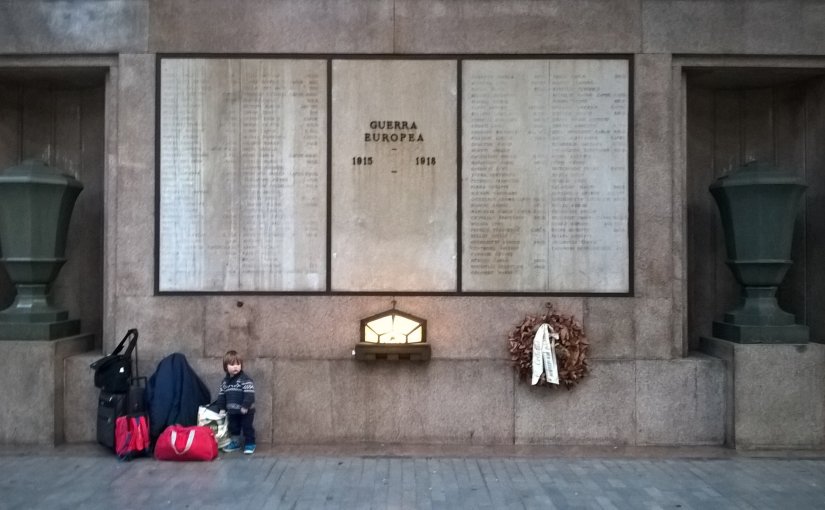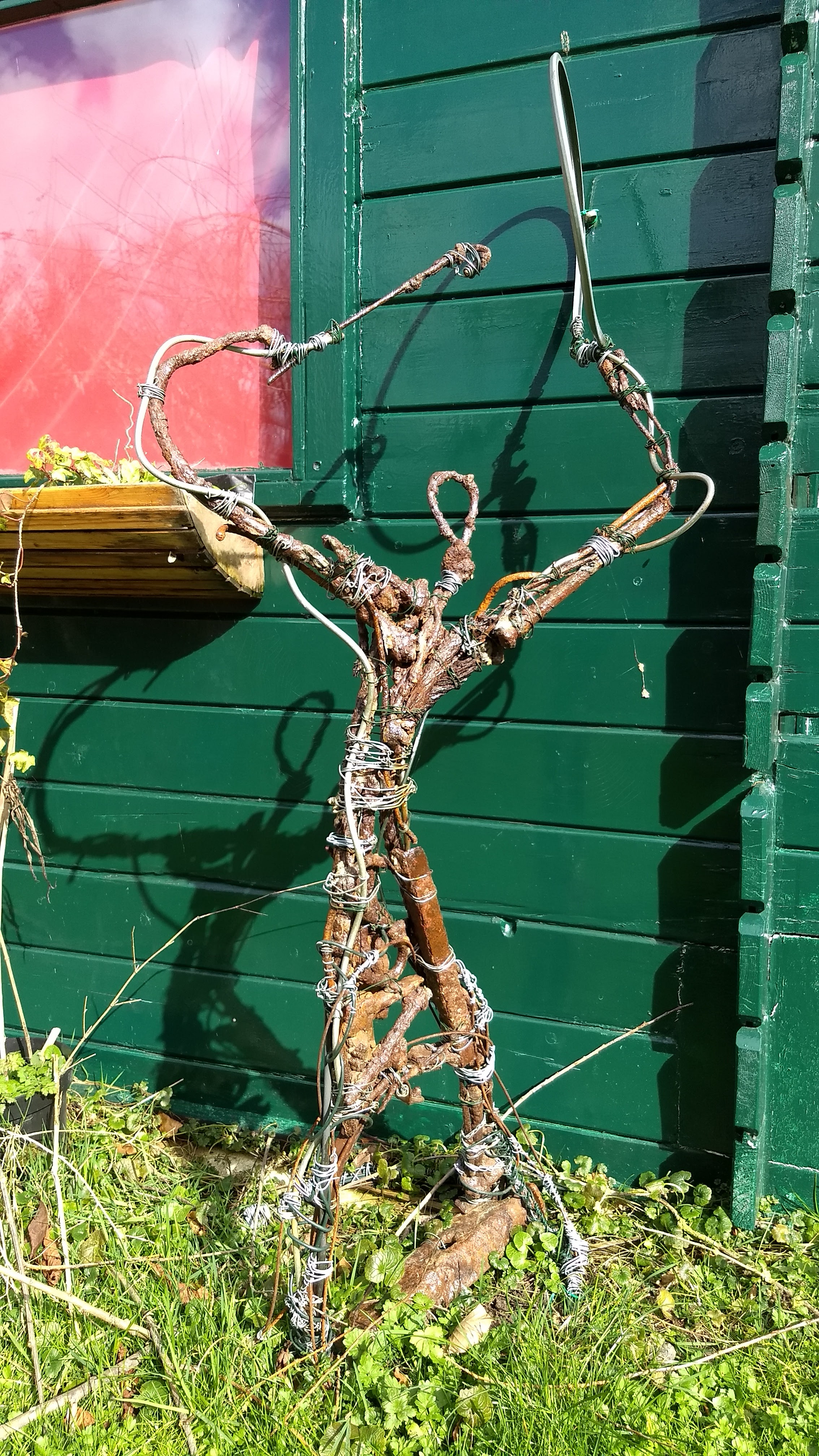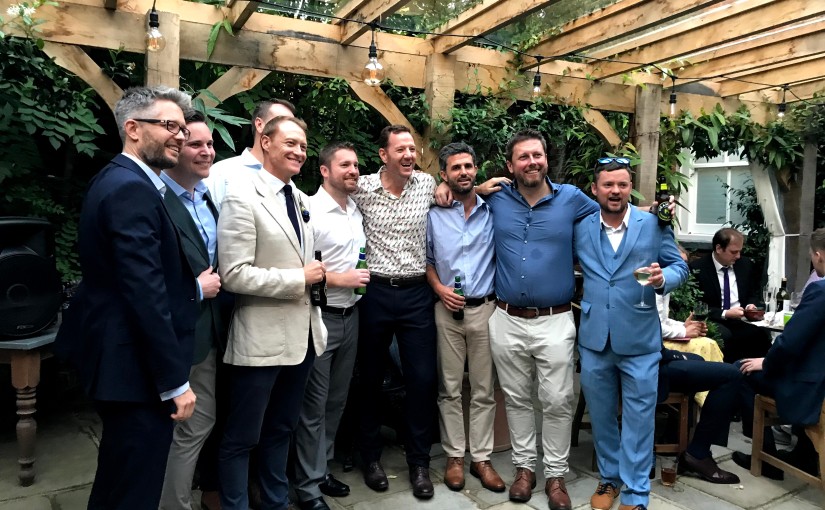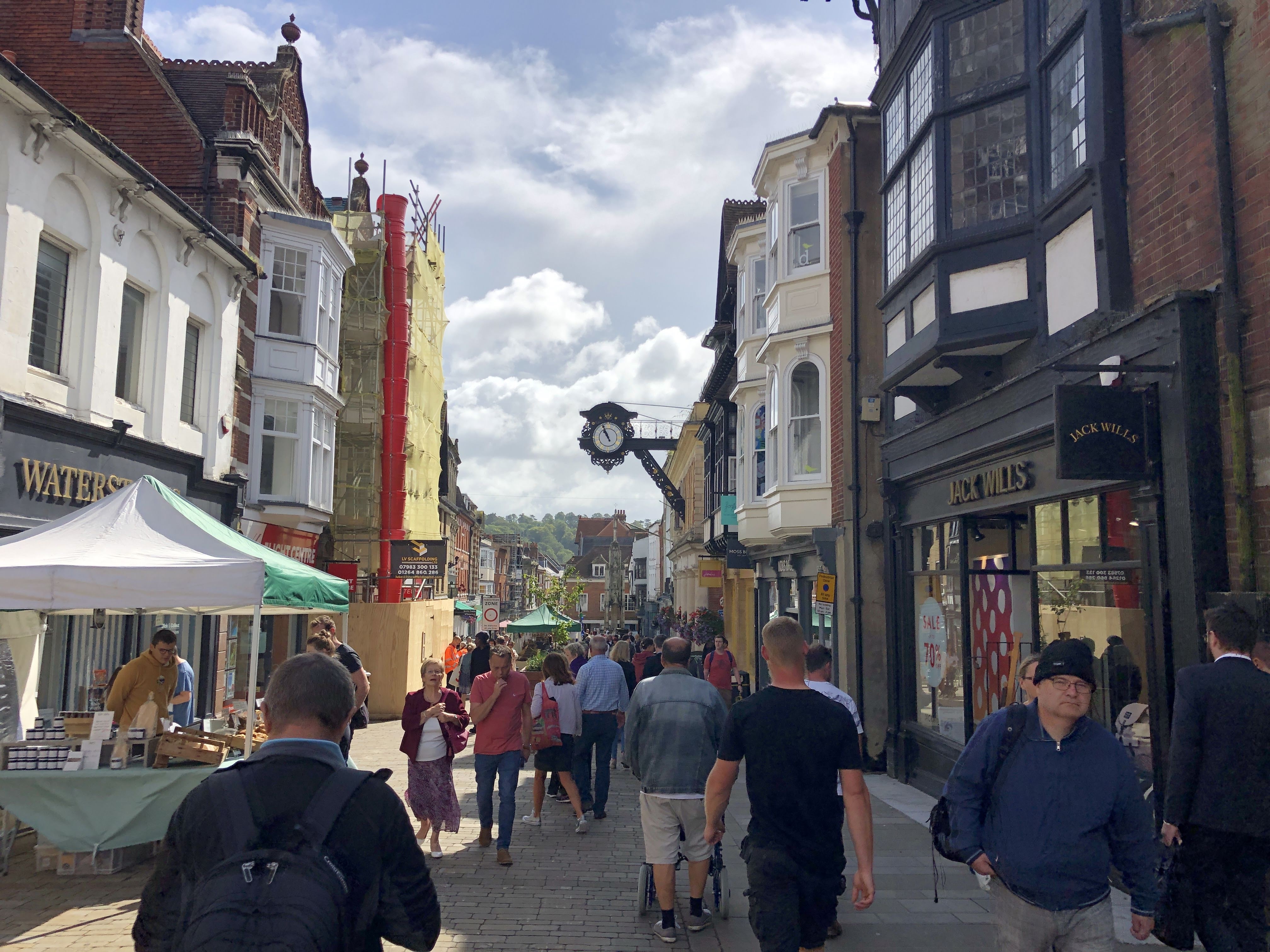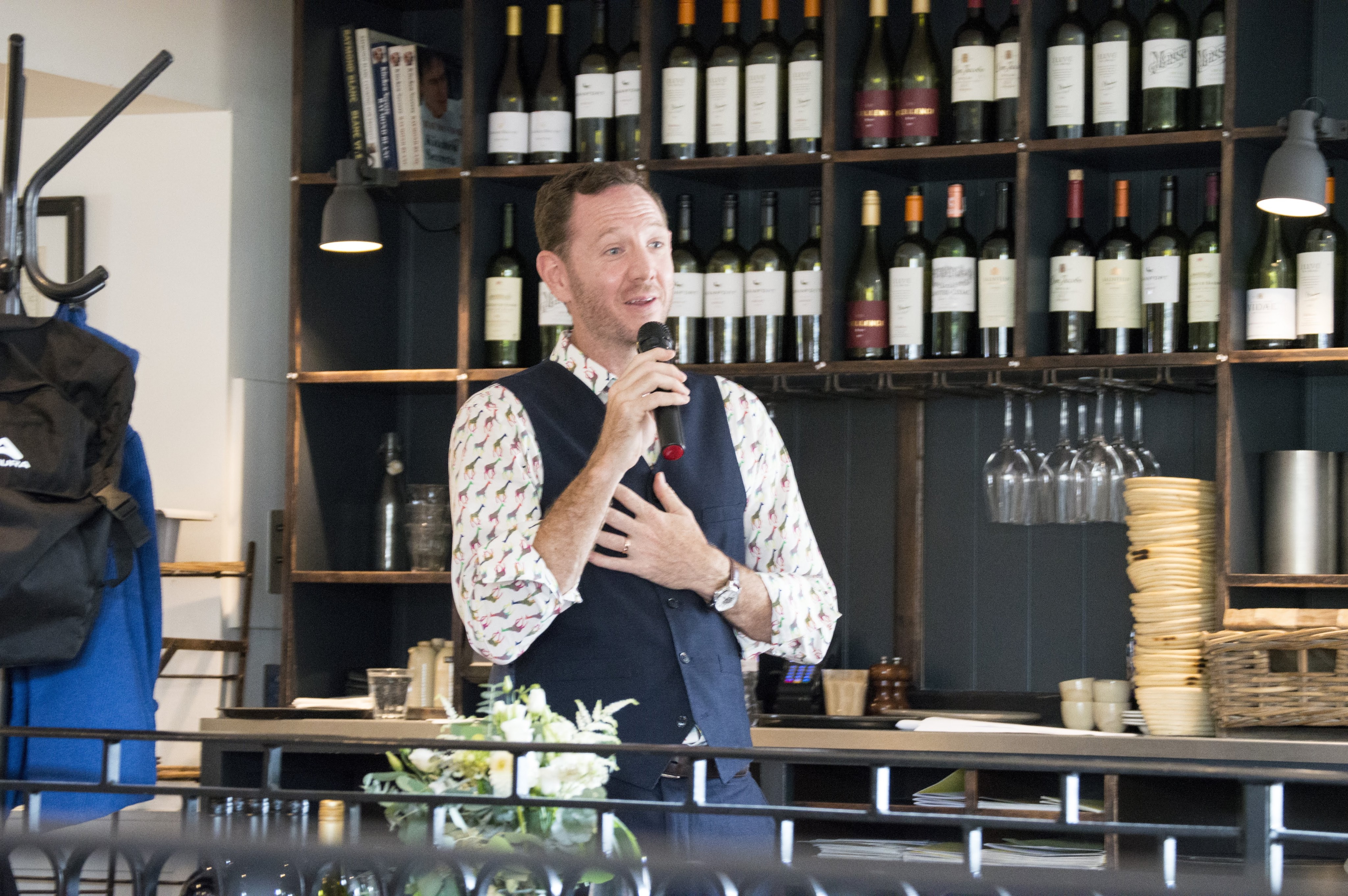As a classically educated geologist I am absolutely, 100% convinced by the empirical investigations of generations of committed scientists from many different fields, that we live on an ancient planet (somewhere of the of order of 4.5 Ga, shorthand for billions of yrs) in an even older universe (circa 14 Ga or so).
As a classically educated geologist I am absolutely, 100% convinced by the empirical investigations of generations of committed scientists from many different fields, that we live on an ancient planet
Acceptance of these empirical ‘facts’ – if you want to know more there are plenty of good accounts in various textbooks, internet sites like New Scientist and Scientific American and other sources – brings me into conflict with a fair number of decent people, some of whom are actually quite central to my existence, my partner being one of them. It is not that she disagrees outright with the notion of deep time, but she finds it too uncomfortable to dwell on seriously. It is the cases like hers which I think are most prevalent in so-called progressive, Western societies (she is from a Dutch family background).
Mirjam, and I say this with much affection and concomitant resignation, is from a conservative, religious family who espouse Biblical literalism and observation of the Old Testament Law most especially. Actually, I’m very fond of them as a family, because they are warm people and willing to entertain a complete non-conformist like myself, living in a non-matrimonial union with their daughter. It is only that we disagree on some points of fact. Principally, that the creation did not occur in the literal sense as outlined in Genesis. I do not believe in the 7 day Creation story, lumping it with other creation myths put forth by various religions across the world through the ages.
Apart from the comfort and reassurance that comes with an explanatory tale like the creation story in Genesis, which frames events in a progressive series of steps with man (and woman) as the apex of the creative process, what other factors contribute to this non-scientific mindset I’ve often pondered? There are a few possibilities, no doubt elucidated by others – I’d be most pleased to be pointed in their direction – which I will touch on, at the risk of repeating them imperfectly, or at least, less concisely.
The first and foremost of these is the fear of a God who is incomprehensible to us and thus inaccessible.
The first and foremost of these is the fear of a God who is incomprehensible to us and thus inaccessible. Taking the scientific viewpoint that the Earth is 4.5 Ga, any attempt to get a feel for this passage of time, its duration and enormous periods of apparent inactivity or very gradual change, comes to nought. We just can’t contemplate a mind which could endure this preposterous length of time without going quite mad. And since most religious notions of a God figure presuppose that he/she/it created us and comprehends us, most religious followers assume that he/she/it reflects some human qualities – love, mercy, wrath, benevolence, anger and jealousy, being some of the many human qualities attributed to the Judeo-Christian God portrayed in the Bible.
If indeed God does manifest one or more human emotions or characteristics, it is impossible to imagine he/she/it harbouring them for all those billions of years prior to our existence without being an entity quite fundamentally alien to us. If there is anyone else out there who, like me, has experienced the sort of formless pain and sense of detachment derived from periods of social isolation – then you will have little trouble in conceptualising my point. I feel this way by virtue of my brief experience of 42 years of life, how impossible to extrapolate that to 4.5 Ga!
If indeed God does manifest one or more human emotions or characteristics, it is impossible to imagine he/she/it harbouring them for all those billions of years prior to our existence without being an entity quite fundamentally alien to us.
Actually, this point is THE point I wish to make here. I’m not going to go any further in this post except to follow my own train of thought relating to this idea. From a scientific perspective, there is not much to say here, because scientific investigation has failed to prove the existence of a God, or God-attributed manifestations of creation. Any speculation from the science-community in these regards is mostly relegated to untestable, unfalsifiable, faith-based argumentation.
That said, I find the logic of Thomas Aquinas and his notion of a Prime Mover a powerful concept. When things we can perceive come into being or action – babies, storm-clouds, a rolling billiard ball – it is only a matter of empirical investigation to determine the origins of the phenomenon. The accuracy may vary but the idea is sound. By extension the earth and indeed the entire universe itself are the manifestation of forces of creation by a Prime Mover, God.
I haven’t studied Aquinas, other than having been the recipient of his ideas in Catholic Confirmation class, but his idea impressed me. Nor have I read any scholarly criticisms or counter-arguments to the idea in the 3/4 of a millennium since he died. One that seems to jump out at me is the assumption of the concept of linear time in framing this philosophical argument. What if time is circular? No beginning and no end and therefore no need for a Prime Mover? This notion also helps to deal with the very disquieting idea (outside of the God framework) of an infinite universe on the linear scale, one in which there is no beginning. Just a thought.
What if time is circular? No beginning and no end and therefore no need for a Prime Mover?
The idea of circular time also presupposes that it exists in a framework that wholly satisfies all other physical possibilities, and I’m not sure that holds water so to speak. The idea that there is something rather than nothing forces us to contemplate the idea of creation regardless of one’s view of time as being linear rather than circular. Hence I have just provided a counterargument to my previous assertion!
Another thought: If there is a creator of our universe – a possibility which we should at least consider – then he/she/it may ‘think’ and perceive the passage of time in a way quite different to us. After all our perception of time is coloured by a combination of elements i.e. the speed of neurochemical reactions and signal transmission times in our brains within a framework of physical experience, memory formation and anticipation of subsequent physical experience. Remove any of those elements from the framework part and you have an entity which is less-than-human. Assuming that a God entity displays these qualities, possibly amongst others, then how could we reconcile he/she/its experience of Deep Time with our own scientific conjectures?
I would say that the sense of anticipation is the most obvious candidate for ‘tweaking’.
I would say that the sense of anticipation is the most obvious candidate for ‘tweaking’. As a Creator of some description, putting something as vast, diverse and weird as the universe we appear to inhabit into physical existence, requires enormous powers of conceptualisation. Just take a moment to ponder the detail of the atom, the fundamental forces of nature, the precise wavelength of light emitted by an electron orbiting the nucleus of a hydrogen atom whether here or at the edge of the observable universe, and it is conceivable that this was indeed all preconceived. A statement of faith. Unproven. Yet, as an exercise in logic it would seem to me that the sense of anticipation of such a super-sentient God entity in the position of Prime Mover would be endowed with an equally God-like quality of anticipation – an ability to wait things out over the course of billions of years. Our rapid evolution and exponential technological and scientific development destabilises us, gives us a kind of vertigo. We reel and try to take stock.
For many it is easier to lose ourselves in the distraction of the sensory world of the present, whilst for others religion gives a sense of comfort and guidance. I would say that it takes a fool or a madman to contemplate the nature of a God who was here since the dawn of time and was anything like us at all.
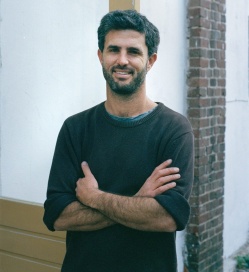

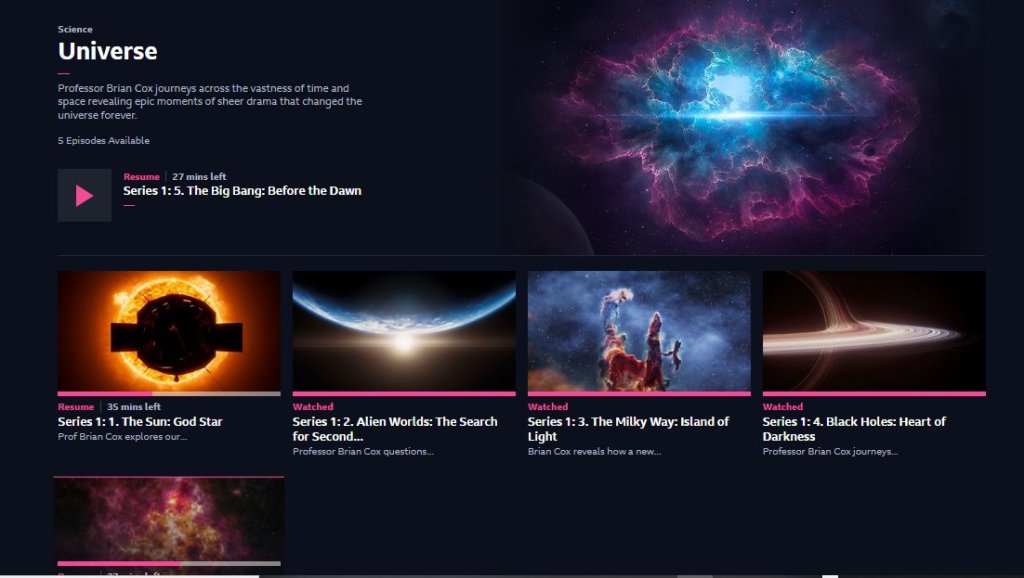


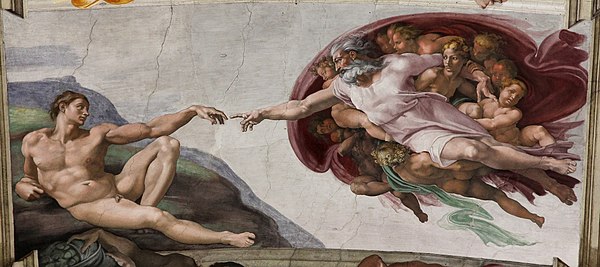

![What is philosophy? [Google/Wiki definitions]](https://leopassi.files.wordpress.com/2021/04/philosophy_definition.jpg?w=1024)
